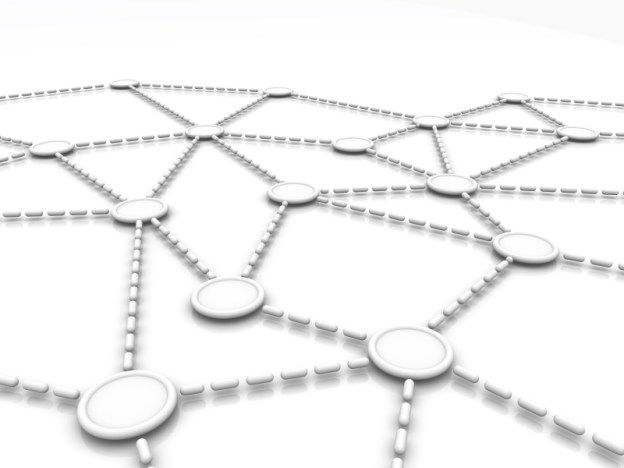 Have you heard of the “Bacon number?” According to urban legend, you can link every working actor or actress to Kevin Bacon in six steps or less.
Have you heard of the “Bacon number?” According to urban legend, you can link every working actor or actress to Kevin Bacon in six steps or less.
And according to a Hungarian physicist named Albert-László Barabási, Web pages operate within a similar framework: It takes 19 steps or less to connect any random page to any other random page. And what’s more, no matter how big the Internet gets, the connection will stay the same.
This sounds absolutely crazy; after all, there are over 14 billion individual Web pages. And some of them are cobwebby GeoCities pages paying homage to Katie Holmes and Joshua Jackson’s rumored Dawson’s Creek romance, long abandoned by their now-30-something former webmasters.
The point being, how can you connect the ancient, long-uncared for corners of the Internet to something up-to-date and highly official like the official White House page or the World Bank’s jobs website?
Massive blog aggregators like Reddit bridge the gap, according to Barabási’s paper, published recently in the very-official-sounding Philosophical Transactions of the Royal Society. Facebook and Google, along with other major social media and search sites, also help connect content. The ability to cleave extremely different Web material together like this might strike you as a elegant example of how interconnected everything is. And Barabási lends credence to that idea, since he theorizes that it’s human nature to clump things together into communities.
There’s only one downside to Barabási’s findings: though all websites enjoy the 19-clicks connection, it can be severed easily. Since only a handful of powerful aggregators make the connections possible, shutting down a few select nodes could totally dismantle the way we organize information online.
Of course, as long as we keep those major connecting sites safe, this study means that no matter how huge the Web gets, in 100 years, we can still link Khloe Kardashian to Abraham Lincoln without much fuss. And the world will be forever grateful.
Editors' Recommendations
- YouTube may finally loosen its rigid rules around copyrighted music
- A new Twitter feature could separate the lurkers from the super-users
- Mistakes were made: Hilarious internet mess-ups from the 2010s


